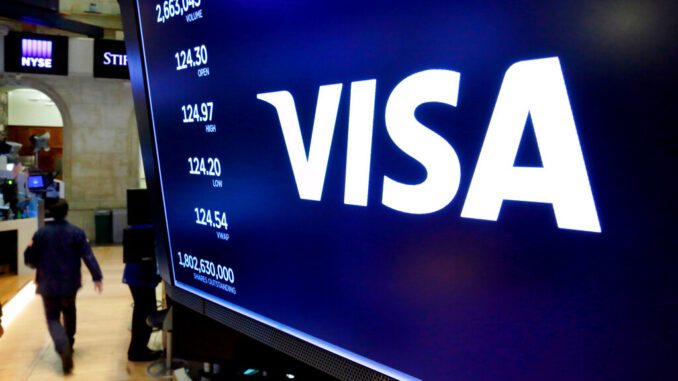
CHARLOTTE — Visa is under investigation by the Department of Justice’s antitrust division over whether the company pushes merchants into more expensive forms of debit card payments, The Wall Street Journal reported Friday.
The investigation is focused on how merchants route debit card transactions when a consumer makes an online transaction, according to the Journal, which cited anonymous sources.
San Francisco-based Visa declined to comment on the Journal’s report.
Visa earns a fee for each transaction that is run on its network. However debit card fees are strictly regulated after Congress passed the Dodd Frank Act following the 2008 financial crisis, in what’s known as the Durbin amendment. The reasoning behind the regulation was because debit cards are typically used for smaller transactions, where merchants’ profit margins may be smaller, compared to high-value transactions that consumers typically use their credit cards for.
Merchants are supposed to be given the option to run debit card transactions on lower-cost networks instead of running it on Visa’s or Mastercard’s network.
The option often appears on the pin pads used by consumers when they buy goods at a store. But that option is not available for online transactions, and where those transactions are being routed could be an anticompetitive practice.
Visa, as the largest payment network, has faced antitrust investigations in the past. The DOJ blocked Visa’s purchase of the financial technology company Plaid earlier this year, citing antitrust concerns. The company has also paid out billions of dollars over the last two decades to settle allegations that merchants were overpaying to accept credit and debit cards.


